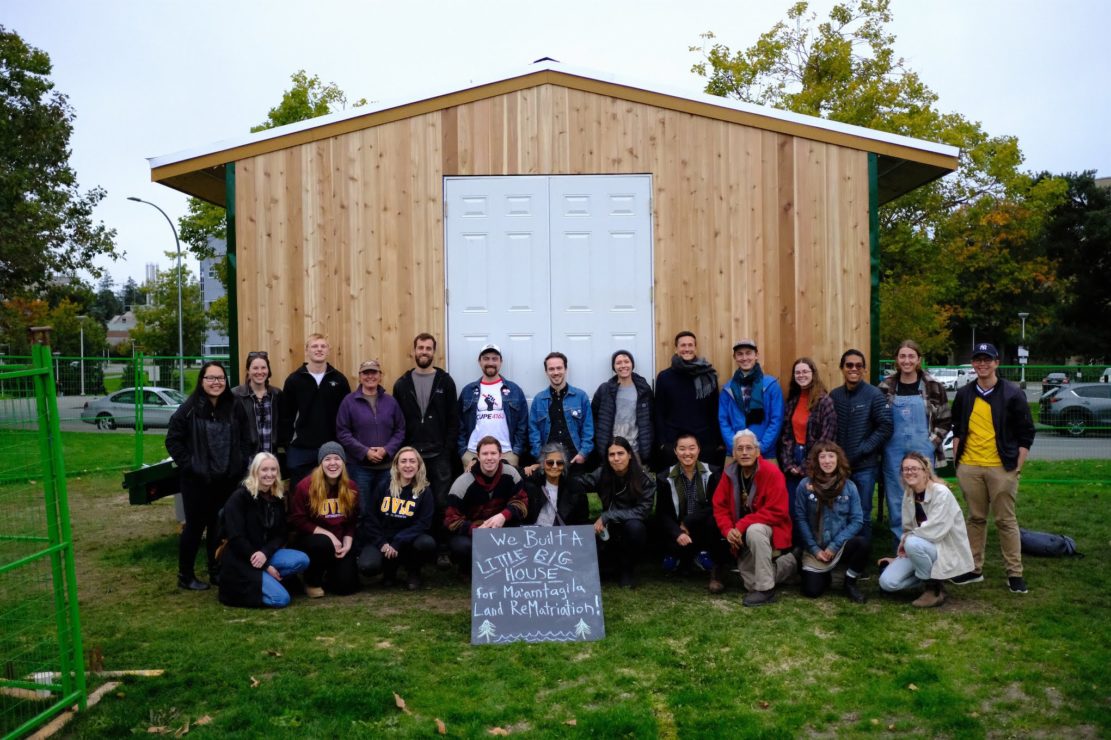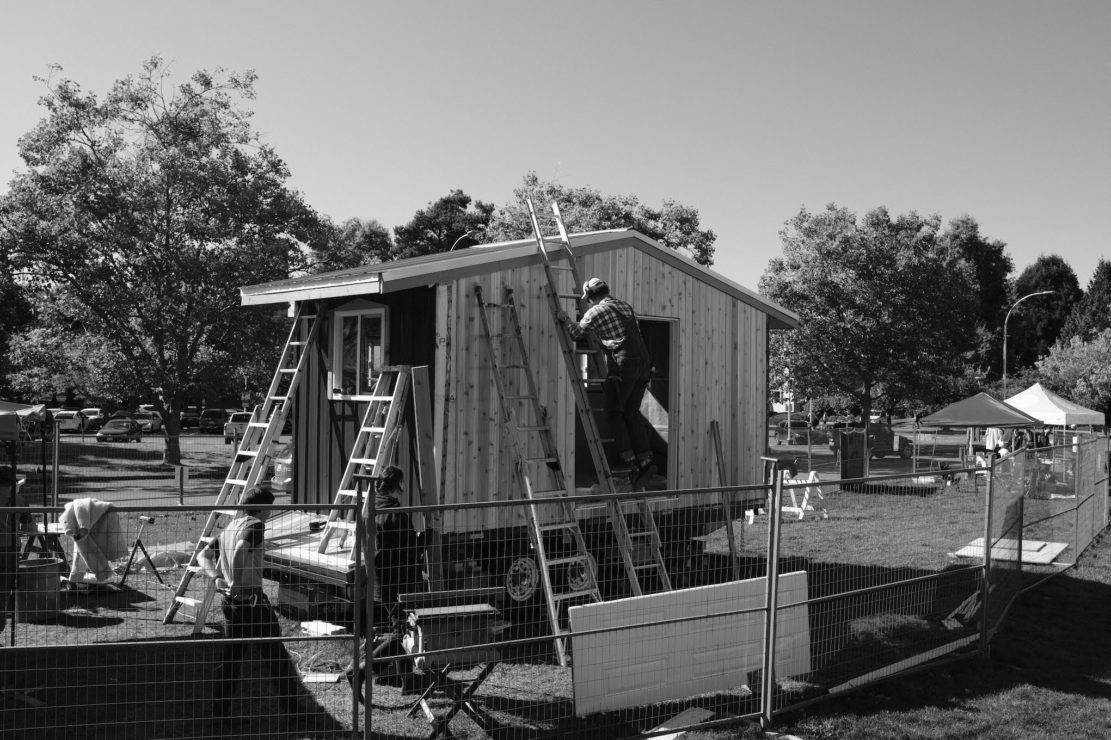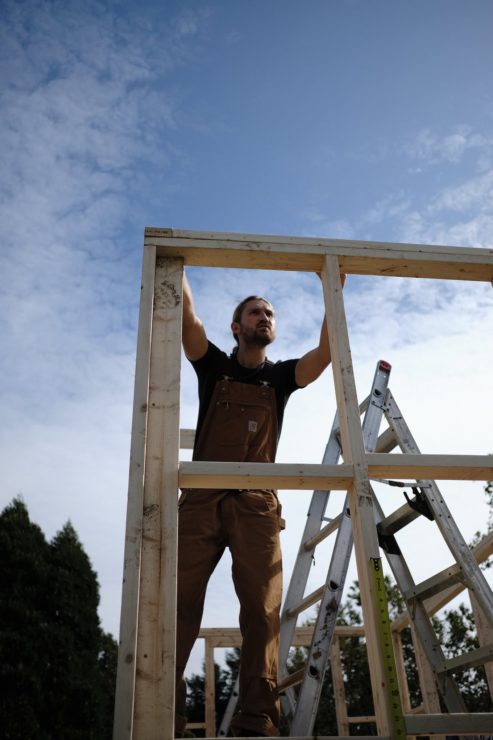This fall, a group of over 115 volunteer students and community members came together at UVic to build a tiny house for the Ma’amtagila matriarch Tsastilqualus. The project was the second to be built on UVic’s campus, and the fourth organized by the same core group of volunteers. Dubbed the “Little Big House” for its traditional Kwakwaka’wakw big house inspired design, the building features a wide, centre-peaked roof and cedar-paneled front.
The build itself happened over 10 days from Sept. 23 to Oct. 2, on a site set up next to the UVic Student Union Building with permission from the university. Volunteers signed up for each day of the build or dropped by to pitch in whenever they had the time.
Skill levels ranged from carpenters and contractors taking time off their regular work, to university students learning how to use power tools for the first time. Despite some unexpected complications from rain and wind, the build progressed quickly and finished ahead of schedule. During the build, other teams of volunteers cooked meals for those building, screen-printed T-shirts and patches, and tabled outside the build site.
Planning for the build began in July after Tsastilqualus approached one of the organizers, voicing her need for a home that would allow her to return to live on her traditional territory. Fundraising began in earnest in September, and thus far, through donations, screen-print sales, and fundraising events, over $27 000 has been raised, far exceeding the original target budget of $18 000. Extra funds will go towards the finishing and furnishing of the interior, outfitting it with solar power and communications equipment, moving the home, and supporting Tsastilqualus and the Wild Salmon Matriarch Camp’s operational costs through the transitional period of establishing themselves on their territory.
Finishing of the Little Big House will happen over the winter while the house is parked at a supporter’s home in Cowichan, before it is finally moved to its destination near the village of Hiladi. Once it is moved, the Little Big House will serve as a home for Tsastilqualus on her traditional territories and a base of operations for the Wild Salmon Matriarch Camp. There, they will continue their work of witnessing and documenting the industrial logging and fish-farming operations threatening the well-being of the territory, and assert their claims of Indigenous title and rights over it while upholding hereditary Kwakwaka’wakw systems of governance.
















